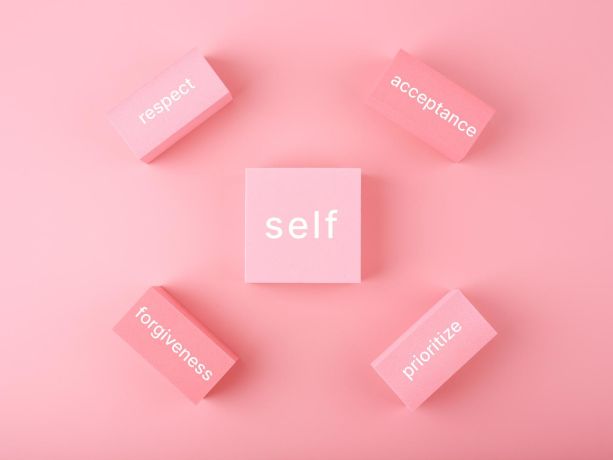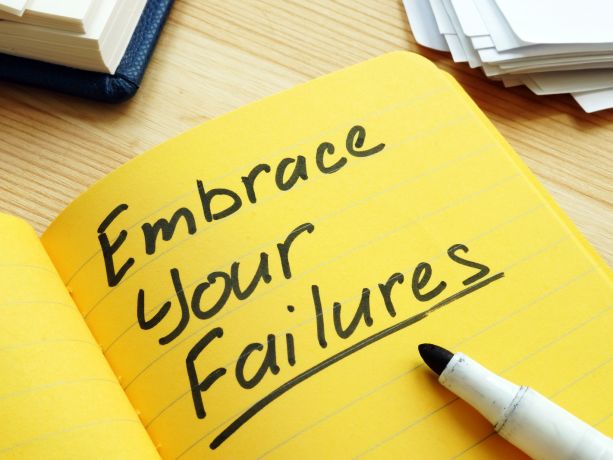If that sounds like you, trust me, you're not alone.
Let's have a heart-to-heart about mindfulness – no yoga poses required.
Think of mindfulness as giving your full attention to the present moment. It's like enjoying a meal and really tasting each bite without your mind drifting off to other stuff.
Or driving without your thoughts racing all over. It's actually noticing the colours of the cars around you, not just on autopilot.
Mindfulness is all about being right there in the driver's seat, fully aware.
Curious about how to adopt this mindset?
Well, it's not as mysterious as it sounds—it's as simple as your daily coffee routine. Keep reading to get some beginner-friendly mindfulness tips, in the simplest terms possible!
1-Adopt a “Beginner’s Mind"

The easiest way to integrate mindfulness into your life is to approach every experience with a beginner's mindset.
Simple as that.
This means looking at each experience—even those you may have had many times before—with fresh eyes and an open heart. When you act like it's the first time, your mind stays present.
- Imagine you're making your morning coffee. Instead of being on autopilot like you've done a million times before, pretend you've never brewed coffee in your life. Notice the smell, the sound of water pouring, and feel the warmth of the cup. Approach the experience with the curiosity of somebody doing it for the very first time.
2-Use Positive Affirmations

Use positive affirmations—they're like secret weapons for your mind, giving you serious mental muscle.
- Think about a challenge you're facing, big or small. Instead of letting thoughts control your brain, create a mantra like 'I am resilient, I am capable, I can overcome.' Repeat it in your mind whenever you feel that challenge creeping in. See how this positive affirmation changes your perspective.
3- Set Realistic Expectations
Mindfulness takes time to blossom, it's not a quick fix. It's a journey that demands practice and patience.
Studies say it's a stress reliever, and all that jazz, but don't expect magic overnight.
4-Practice Gratitude

Think gratitude as the special ingredient in your mindfulness mix – it's the extra flavor, like icing on a cake.
- Here's a tip: Spend a moment to notice the beauty of sunset or keep a daily journal (just ten minutes) and note three things that brought you smile.
5-Notice Your Emotions Without Reacting to Them

Mindfulness practice is key to manage our emotions without reacting rashly. Step one: just be aware of your emotions. Begin by paying attention to how your body physically reacts to different feelings.
- For example, when feeling anxious, your body may tense up or your heart rate may increase. Observe these physical reactions and label them with an emotion word like “anxious” or “angry”. This will help you identify your emotions before you act
Additionally, taking a few deep breaths before responding will help you pause and react in a more mindful way. Try to incorporate these mindfulness practices into your daily routine and remember to be gentle with yourself.
6-Connect with Nature

Connecting with nature is one of the most effective and easy-to-follow mindfulness tips for beginners. It doesn't require much effort; it's all about taking the time to appreciate your surroundings.
- Interestingly, studies have shown that spending time in nature can significantly reduce stress and improve overall wellbeing.
So, whether you prefer taking a stroll in the park, tending to a garden, or gazing at the stars in the night sky, these activities can have a good impact on your mental state.
Why not take a few moments today to reconnect with the natural world around you? Afterward, you'll likely feel more mindful, relaxed, and at ease.
7-Use Visualization Practices

Have you ever wanted to know how to bring more mindfulness into your everyday life?
Well, visualize it!
- Picture yourself calmly achieving your tasks, one by one. Visualize the completed projects and feel the sense of accomplishment. Visualization helps you stay mindful amid daily stressors.
8-Talk to Yourself with Kindness

It's time to start your journey towards befriending yourself.
Just like any relationship, it takes practice and dedication.
Think of yourself as a love song, and every act of kindness towards yourself as its verses.
Embark on this journey with intentional steps and a mindful heart, and you will be rewarded with a newfound sense of self-empowerment that will carry you through life.
- Be kind to yourself. Choose words of affirmation over negative self-talk. Exchange 'I can't' for 'I can and I will'. Speak to yourself with understanding and recognize that your worth doesn't come from the pursuit of perfection; it comes from simply being alive. Give yourself the gift of grace and strengthen your connection with your inner strength.
Practice self-care. Make time for activities that make you feel joy, such as taking a walk in nature, doing yoga, or having a relaxing bath. Tap into inner stillness and invite peace into your life, so you can find clarity and perspective. Nourish your body with nutritious foods and take the time to rest and reset when needed.
Commit to becoming your own best friend and speak to yourself with love. Learn to move through life with openness and understanding, remembering that every moment is an opportunity to start anew.
9-Look After Your Body

Taking care of ourselves is like tending to an enchanted garden of the mind. It requires a mindful approach to keep the soil healthy, the air fresh, and the waters flowing.
- To live a mindful life means no longer neglecting our body and giving it the attention it deserves. With a balanced diet and regular physical activity, we can nourish both our mind and body.
From enjoying our meals to stretching or meditating in the morning, these moments of mindful appreciation add up. Exercise is a special type of mindfulness; a way to truly explore our body and mind's capabilities. Whether it's running, swimming, yoga, or any other form of physical activity, these activities can become integral elements to our journey of mindful living.
So let’s not forget that taking care of ourselves physically completes the circle of mindfulness..
10-Unlock Your Sensory Perception
Mindfulness practice encourages us to become aware of the here and now, from the simple, everyday sensations of sounds, flavors, and textures, to more epic experiences such as birdsong, the wind and the sky.
Taking time to notice the details of our environment can help bring us into the present moment, and helps us better appreciate life on a deeper level. Such practice also helps us become aware of our senses - by carefully paying attention to the way we experience the world and all its wonders, we can ensure we get the most out of our mindfulness practice.
11- Sleep Well

The promises of mindfulness for a good night's sleep are clear. The practice of focusing on the present moment and calming the body and mind can build relaxation, reduce stress and anxiety, and promote a more peaceful state of being.
From Mindfulness-Based Stress Reduction (MBSR) to Mindfulness-Based Cognitive Therapy (MBCT), evidence-based interventions are proving effective for insomnia sufferers.
- Mindful sleep practices can also help break negative thinking patterns and habitual rumination that hamper many with nighttime restlessness. And as an added benefit, these contemplative practices will impart an overall improved state of wellness due to improved mental clarity throughout the day.
Mindfulness can be an integral part of a successful sleep plan – one that starts not just at bedtime but with regular practice throughout each day. So embrace mindful sleep interventions and enjoy the rejuvenating rest that comes with it.
12-Incorporate Mindfulness Into Your Daily Routine

Where do you want to begin your journey to mindfulness?
Everyone’s path is unique, and everyone’s routine will look different.
But at its core, incorporating mindfulness into your life is about slowing down, being present, and bringing more awareness to everyday moments.
- Start by slowing down - even if it’s just for a few moments each day. Instead of rushing from one task to the next, take a breath and focus your attention on the task at hand. Notice how your body feels as you complete each task, and don’t forget to give yourself some credit for taking the time to be mindful.
- As you become more familiar with mindfulness, start bringing awareness to your environment. Train yourself to pay closer attention to your thoughts and feelings. Notice the texture of the items around you - the feel of a smooth glass or a furry animal. Smell the scent of a rose or fresh-brewed tea. Taste the flavors of your favorite breakfast meal. Hear the sound of birds chirping in the morning or the whispers of trees in the wind.
- Finally, don’t forget to take it slow! A mindful state of mind takes some practice, and it may seem overwhelming at first. But with patience, consistency and self-care, mindfulness can become a natural part of your daily routine.
13-Focus on One Task at a Time
Mindfulness is the invitation to come alive in the present moment and be totally aware of everything around you. It's about connecting with yourself and the world around you; being present while mindful of the sounds, sights, sensations, and emotions.
- By focusing on one task or activity, you can achieve clarity of thought and feelings, allowing you to be more productive and efficient. Taking a few moments to appreciate your environment gives you time to pause and breathe.
By monitoring your thoughts and feelings, you can settle into a sense of inner stillness and peace. Being mindful is an opportunity to transform stress and anxiety into productivity and focus. Take the time to be present, be mindful, and feel more connected with yourself and the world around you.
14-Practice self-compassion

Self-compassion is like your best friend giving you a hug - even when you fall on your face and mess up something big.
- It's understanding that mistakes are part of life, and accepting that you're only human, even when things don't go right.
And with self-compassion comes the realization that your strength and resilience can carry you through even the toughest of times. So show yourself some kindness and use it to power your goals.
15-Embrace failure as an opportunity for growth:

Many people fear failure so much, it can make them want to play it safe and never take a risk.
But you know what?
Making mistakes and facing judgement can be a great learning experience - if you view it in the right light. After all, everyone fails at some point, so why not turn it into an opportunity for growth?
Reframing failure as an inevitable part of the learning process can make you more resilient and motivate you to try new things and reach your goals, even when things don't always go your way. You can read more about the benefits of motivation
Final Thoughts
As final thoughts, let's reflect on the key takeaways:
-Be kind to yourself. Affirm, don't negate.
-Adopt a Beginner's Mind
-Your worth is in existence, not perfection.
-Captain your life or run a mental control center.
-Details matter – savor meals, explore body capabilities.
-Mindful living is a fulfilling journey, choose your compass.